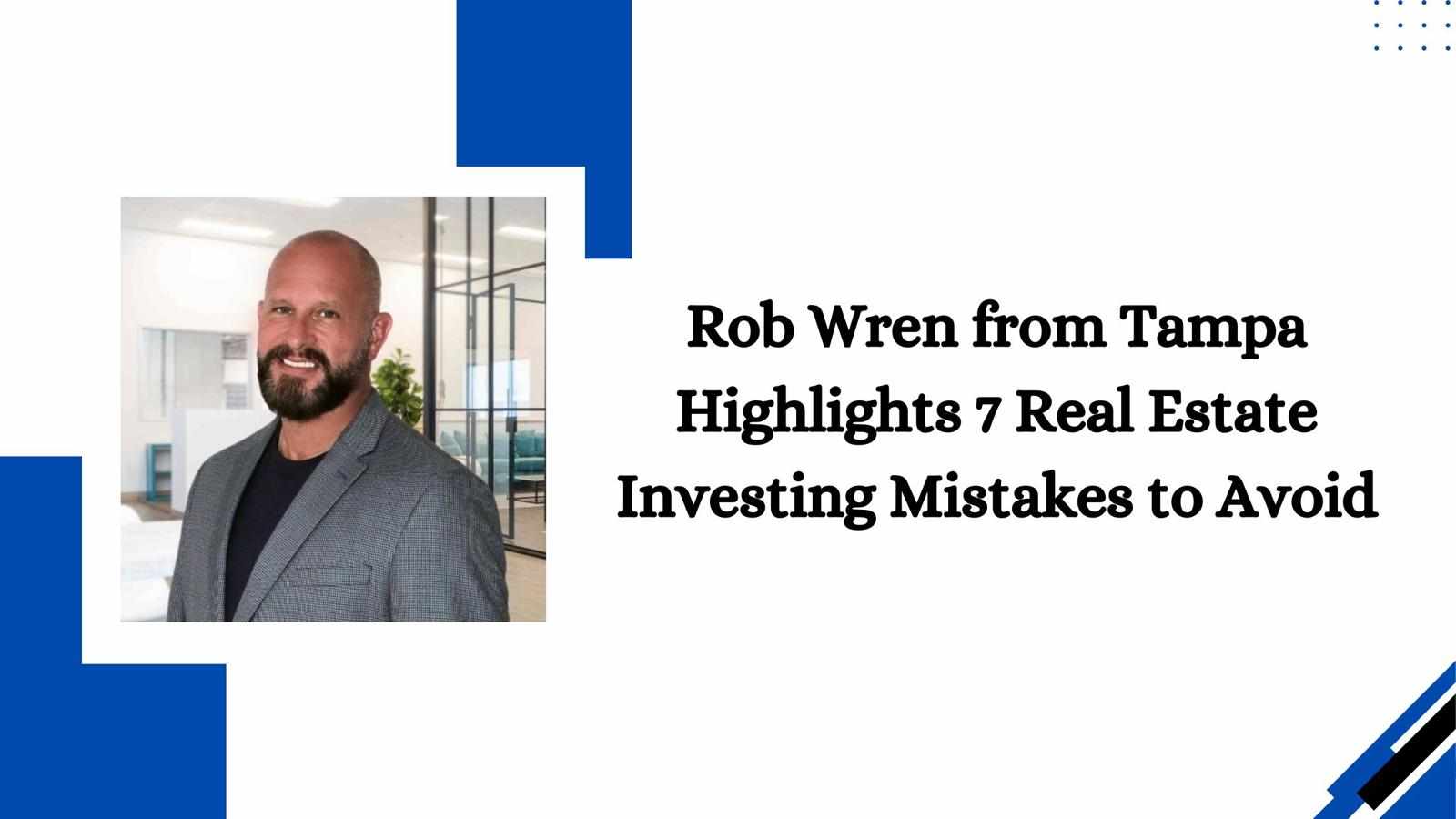
Rob Wren from Tampa is a real estate investment consultant and founder of Blueprint Consulting, where he helps investors build profitable portfolios with strategies like wholesaling, flipping, creative financing, and buy-and-hold investing. With years of hands-on experience, he guides clients through smart financial planning and practical real estate. Rob Wren highlights seven common mistakes that real estate investors should avoid to protect their investments and achieve long-term success. These insights are drawn from real experiences and lessons learned in the field, offering practical guidance for both beginners and seasoned investors. By understanding where most people go wrong, investors can make more confident choices, reduce unnecessary risks, and build a stronger foundation for financial growth. Rob’s approach focuses on turning challenges into opportunities, helping investors create strategies that are sustainable, adaptable, and results-driven.
1. Jumping In Without a Clear Plan
One of the most common errors is entering real estate investing without a defined strategy. Some people buy properties simply because they seem like a good deal, but they lack a vision for how the property will generate income or grow in value. Without a clear plan-whether it’s flipping, renting, or holding long term, investors can end up with financial strain and wasted opportunities.
A well-structured plan outlines your goals, your budget, the type of properties you want to invest in, and the time frame for results. He emphasizes that planning is not optional, it is the foundation of real estate success.
2. Underestimating Expenses
Another mistake investors make is underestimating the true cost of owning and managing a property. Beyond the purchase price, there are repairs, maintenance, insurance, property taxes, and sometimes unexpected costs like legal issues or vacancies.
He points out that investors who fail to calculate these costs often end up with negative cash flow. Successful investing requires not only budgeting for the purchase but also setting aside reserves for long-term property care.
3. Ignoring Market Research
Buying a property without understanding the local market is a serious risk. Factors such as neighbourhood demand, economic growth, rental trends, and future development plans all play a big role in determining property value.
He explains that some investors focus too much on the physical property and overlook the importance of location. A beautiful home in a declining area may struggle to attract buyers or tenants, while a modest property in a growing neighborhood can generate strong returns. Market research ensures that investment decisions are based on facts, not assumptions.
4. Overleveraging with Debt
Leverage is a powerful tool in real estate, but overusing it can lead to financial trouble. Some investors take on more debt than they can handle, assuming property values will continue to rise. However, markets can shift, and when they do, highly leveraged investors face increased risks of foreclosure or losses.
He advises investors to be cautious with financing. Using leverage responsibly allows growth, but every investor should ensure they have enough reserves and flexibility to withstand market changes.
5. Failing to Build a Strong Network
Real estate is not a solo journey. Many investors limit themselves by trying to handle everything on their own. Without a strong network of real estate agents, contractors, lenders, and mentors, opportunities may be missed, and mistakes can be costly.
He believes that success in real estate comes from relationships as much as from numbers. Building a trusted network provides investors with guidance, resources, and partnerships that create long-term stability.
6. Neglecting Due Diligence
Skipping proper inspections or rushing through paperwork is another common mistake. Sometimes investors get excited about a deal and fail to perform a full review of the property, contracts, or title history. This can lead to unpleasant surprises such as structural problems, zoning restrictions, or legal disputes.
He stresses the importance of patience. A good deal remains good even after careful evaluation. Due diligence protects investors from hidden risks and ensures that decisions are made with full awareness.
7. Forgetting the Long-Term Perspective
Real estate is not just about quick profits; it is about long-term wealth building. Some investors make the mistake of focusing only on immediate returns, overlooking the potential of steady appreciation and cash flow.
He encourages investors to think beyond short-term flips and fast gains. By combining strategies, such as mixing rental properties with occasional flips, investors can balance immediate income with long-term growth. This perspective creates sustainable success rather than relying on market highs.
Final Thoughts
Rob Wren from Tampa has built his career helping investors make smarter decisions, and his experience shows that avoiding mistakes is often just as important as making the right choices. By taking the time to plan, research, budget, and network, investors can reduce risk and increase their chances of success.
Real estate will always involve challenges, but with the right guidance and discipline, those challenges can turn into opportunities. For anyone stepping into the field, or looking to grow further, learning from these seven mistakes is a vital step toward creating a profitable and resilient real estate portfolio.











Write a comment ...